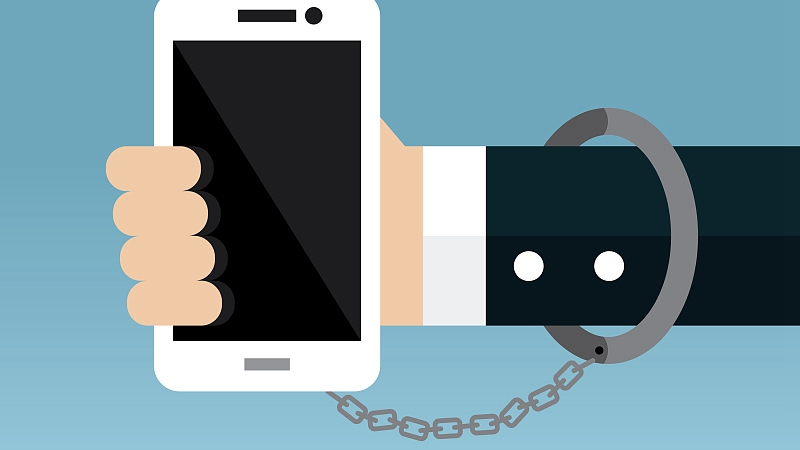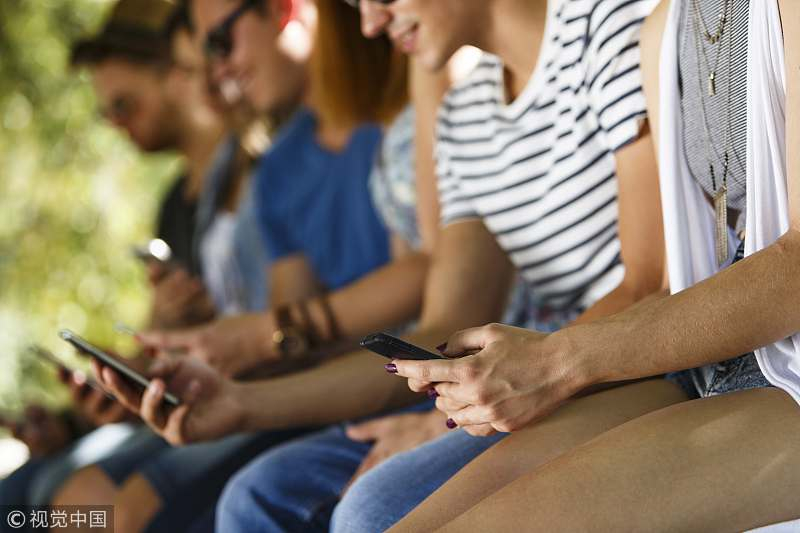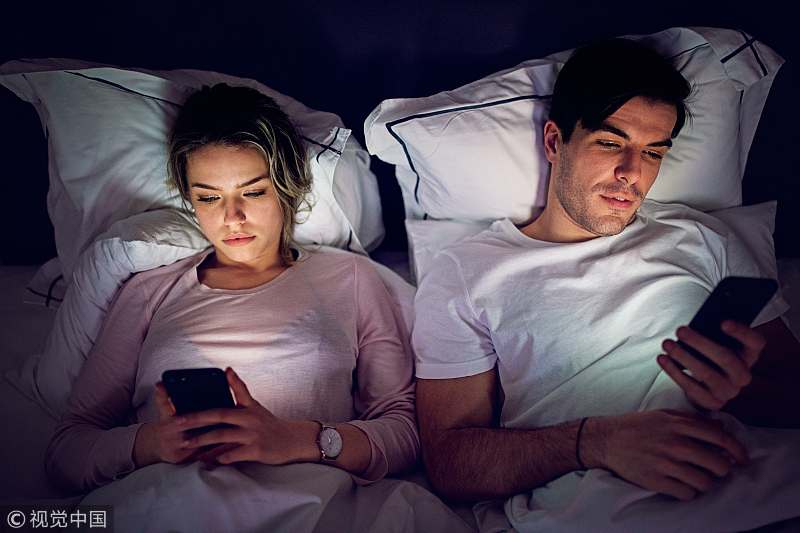
Health
20:43, 15-Feb-2019
Lost in lethargy: The perils of the smartphone obsession
Updated
21:07, 16-Feb-2019
By Xu Yanqiu, Michael Harrold

In Pride and Prejudice, Jane Austen describes Elizabeth Bennet's first visit to Netherfield. On hearing that her sister Jane has been taken ill at the house, Elizabeth walks three miles (about 4.8 kilometers) to see her.
Austen introduces Elizabeth as a healthy and energetic young woman, "crossing field after field at a quick pace, jumping over stiles and springing over puddles with impatient activity, and finding herself at last within view of the house, with weary ankles, dirty stockings, and a face glowing with the warmth of exercise."
Unbeknown to Elizabeth, her exertions have earned her a secret admirer. Mr. Darcy, Austen says, is struck by "the brilliancy which exercise had given to her complexion."

A still of the movie Pride and Prejudice from Focus Features. /VCG Photo
A still of the movie Pride and Prejudice from Focus Features. /VCG Photo
Two hundred years after Pride and Prejudice was written, Jane Austen's relatively unsophisticated understanding of the benefits that exercise has for our appearance and health is supported by a wealth of scientific evidence.
Whether you're nine or 90, exercise is good for your physical and mental wellbeing, and may even extend your life. Studies have shown that regular exercise cuts the risk of heart disease, cancer, diabetes, high blood pressure, and depression.
Science, despite attesting to such well-proven benefits, is conspiring to prevent us from enjoying them.
Many of us, whether at work or play, are spending long hours in front of a screen – be it a television, computer, or mobile device. Surfing the Internet, sending messages, watching films and playing video games are the sedentary pastimes that are dominating our daily existence.
The smartphone is more guilty than any other modern device, in keeping us from exercising. In Chinese, there's the phrase, "ji bu ke shi", meaning "a golden opportunity not to be lost." Here, ji stands for ji hui, or opportunity. But in a play on words, if ji is interpreted as shou ji, we get "a smartphone not to be lost" – hinting at how poorly most of us would function, without our ubiquitous handheld device.

The smartphone is more culpable than any other modern device in keeping people from exercising. /VCG Photo
The smartphone is more culpable than any other modern device in keeping people from exercising. /VCG Photo
The dependence on smartphones has led to a reported rise in the number of young people with back problems, caused by spending many hours, bent over the little screens. Obesity is another side-effect; we're getting into the habit of sending emails and messages to friends and colleagues when in the past we would have got up from our seat and gone to meet them in person. And doctors are warning that over-exposure to a flickering screen can damage our eyesight.
Around the world, people are spending more and more time on physical lethargy. In the UK, research shows that just one woman in six has exercised regularly since childhood; the figure for men is significantly better, but still little more than one in three. Millions of Americans aren't sufficiently active to meet the minimum threshold for good health; that is, burning at least 700 to 1,000 calories a week through physical pursuits.
It's not only our physical health that's being undermined by this technology-fueled inactivity; our mental well-being is suffering, too.
Marcus Tullius Cicero, the Roman statesman, living 2,000 years ago, said: "It's exercise alone that supports the spirits, and keeps the mind in vigor."
Humans are, by nature, susceptible to distraction. With smartphones, we have a world of distractions, literally at our fingertips – distractions that are seducing us away from such simple, active pursuits as, say, a walk in the park.
Smartphones underpin our fixation with social media. We've become compulsive about checking the number of likes our latest WeChat or Instagram post has received. A large number makes us feel good, and in turn, fuels our addiction. Something cool or interesting may be happening somewhere in the world, and we're tempted to check our smartphone, again and again, to keep up-to-date. There's even a term for this thoroughly modern behavior – Fear Of Missing Out, or FOMO.
More insidious still, is the smartphone's influence on our self-esteem. Among young people in particular, a lull in receiving messages can be a cause of anxiety. A long wait for an anticipated response can create the fear that someone you hold dear is ignoring you, or that a group you consider important is excluding you.

Smartphone addiction /VCG Photo
Smartphone addiction /VCG Photo
This obsession with being constantly in touch is creating the phenomenon of smartphone addiction. At the dinner table, in the cinema, while driving… Even in bed at night, it's becoming the norm to check constantly for texts, emails, WeChat messages, and social media updates. The smartphone, it seems, is intruding into every form of human interaction.
One wonders what Mr. Darcy would have made of Elizabeth Bennet, had she turned up at Netherfield pasty-faced and depressed from checking her smartphone.
(Cover via VCG)

SITEMAP
Copyright © 2018 CGTN. Beijing ICP prepared NO.16065310-3
Copyright © 2018 CGTN. Beijing ICP prepared NO.16065310-3